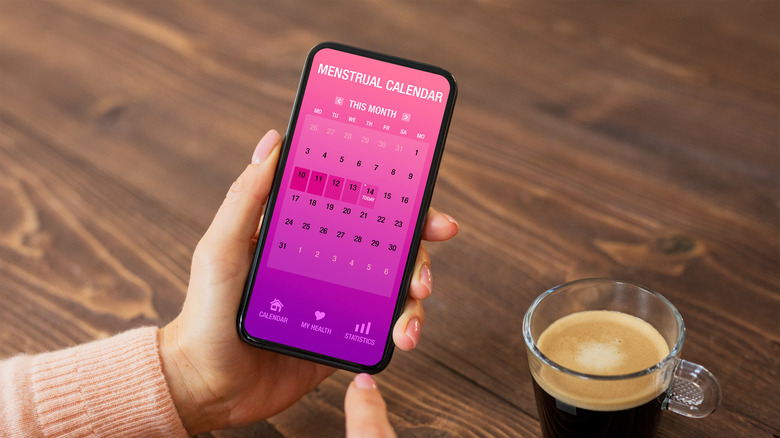What Shorter Menstrual Cycles Could Mean For The Onset Of Menopause And Symptoms
If you're a woman, you probably know to expect your period around every 28 days. Your menstrual cycle begins on the first day of your period and ends as your next period starts. The Office on Women's Health (OWH) explains that on average, your cycle is considered regular if it falls anywhere between 24 to 38 days. Your cycle could change on a monthly basis, and the OWH reports that menstrual cycles change as you get older. Your periods are generally heavier when you're younger, and get lighter as you approach your 30s.
Because of fluctuating hormones, your menstrual cycle can affect your health in several ways, including an increased risk for anxiety and depression, as well as aggravating symptoms of irritable bowel syndrome or asthma, per OWH. Now, research published in the journal Menopause suggests that the length of your menstrual cycle can influence how menopause affects you later in life.
Short menstrual cycles are linked to more menopausal symptoms
For the study, 634 women volunteered for a project spanning approximately 18 years, during which time they reported the length of their menstrual cycles as well as their eventual menopausal symptoms. The results showed that women with menstrual cycles shorter than 25 days throughout their reproductive years were more likely to experience more menopausal symptoms compared to women who had menstrual cycles that lasted 26 to 34 days. Not only that, but they were more likely to begin going through menopause earlier in life. In addition, women with shorter menstrual cycles also had a higher risk of developing sleep problems during midlife, as well as higher odds for depressive symptoms and heart discomfort. Researchers noted that more data about the impact of shorter menstrual cycles was needed.
Menopause comes with a number of symptoms that include mood swings, hot flashes, a racing heart, headaches, vaginal dryness, and trouble sleeping (via WebMD). There are several ways to treat menopause symptoms that range from hormone replacement therapy to acupuncture. You can also discuss any options with your doctor.


